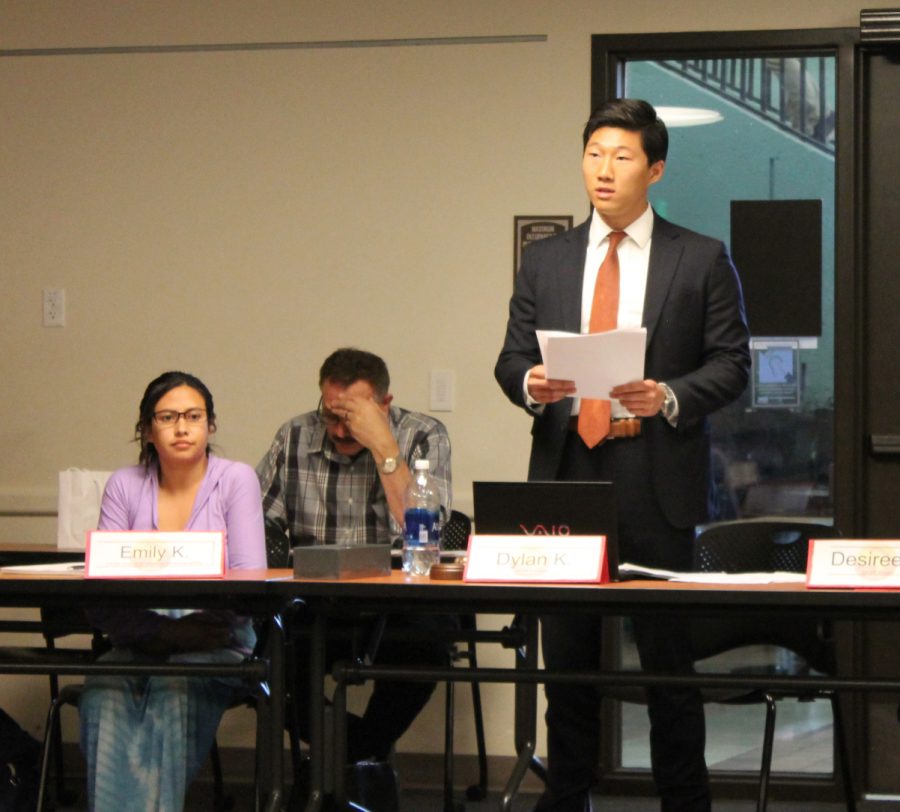Senators transition into DASB Senate
The new DASB senators transitioned into the senate, with advice from last year’s Senate President Matthew Zarate, over the first DASB Senate meeting of the quarter. The meeting took over three hours due to Senate still learning proper meeting procedure, on April 19.
President Dylan Kim’ proposal to install a new Operations Committee in order to address issues such as food insecurity on campus was postponed by a general feeling amongst Senators that existing committees could already do the job.
Kim said the Operations Committee’s goal is to combat all issues and concerns of De Anza campus, and it would exist until all issues and concerns have been alleviated.
However, there was still confusion amongst Senators as to what exactly the committee would do, and the issue was postponed.
Senator Cialysiah Washington said there should be a committee that focuses on issues such as homelessness and food security, rather than passing them down to Students Rights and Services when they’re already focused on a multitude of things.
She also suggested more senators could be added to a potential Operations Committee “because I don’t think five people or seven people is necessarily enough to really immerse yourself into those issues on campus.”
Senator Raphael Villagarcia was elected as the new Legislative Affairs Officer, and will be attending the annual Student Senate for California Community Colleges meeting in Ontario, California. The meeting gathers senators from community colleges all around California to discuss and vote on resolutions.
Ex-president Matthew Zarate was given a Commemorative DASB Clock by faculty advisor John Cognetta, an award that would have been given to him at his inauguration, had he not been up for impeachment a month after being elected president last year.
Zarate asked the new Senate to learn from last year’s Senate’s mistakes, which included “letting politics get in between all of us, in the smallest amount of ways. … We would disagree on one thing and we would feel that tension over the next months.”
“It’s just about everyone having a mutual respect for people and putting everyone’s opinions aside and biases of what they think or what they hear about somebody and just moving forward,” Washington said. “At the end of the day you know, you all have to end up working together.“



